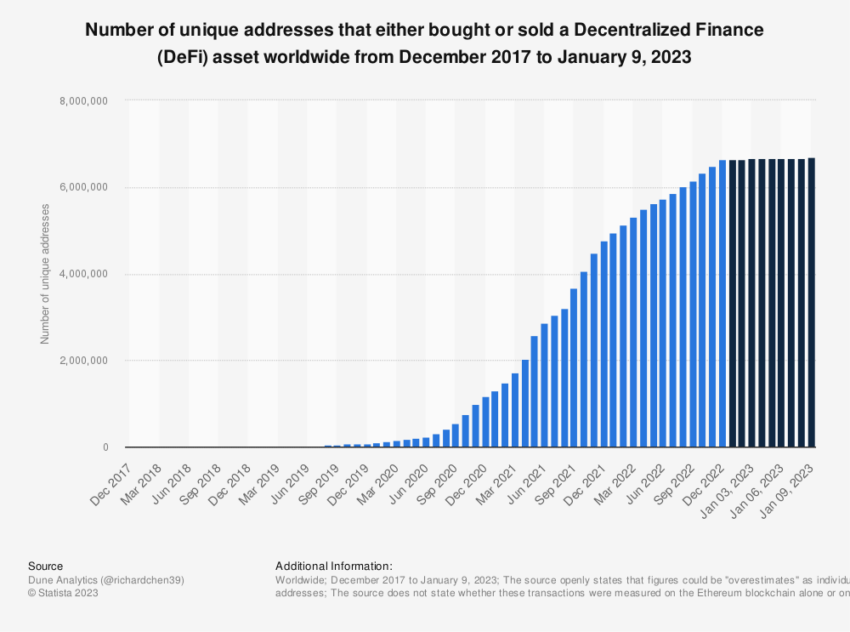How 10 Powerful Firms Fell Short of SEC Recordkeeping Rules
The latest enforcement action by the Securities and Exchange Commission (SEC) targets banks, broker-dealers, and investment advisers active in the cryptocurrency markets.
In its zeal to crack down on decentralized finance (DeFi) and bring firms’ operations under more direct oversight, the SEC has brought charges for “off-channel communications” on the part of the firms’ employees.
The SEC Tightens Oversight of Communications
The agency announced on Friday morning that it had brought charges against ten firms. Among them is Perella Weinberg, the bank advising bankrupt crypto exchange FTX in its restructuring.
Other respondents include Interactive Brokers Corp., Robert W. Baird & Co., William Blair & Company, Nuveen Securities, and Fifth Third Securities. Interactive Brokers is highly active in the crypto space, offering low commissions and 24/7 trading on its website. The others have varying degrees of exposure to crypto.
The respondents will not challenge the SEC in court. They have chosen to settle. Besides paying a total of $79 million in penalties, the firms have agreed to adopt new compliance policies.
The SEC took issue with the use of electronic communications at these firms and the failure to keep complete records of them. According to the agency, its probe of these firms uncovered “pervasive and longstanding off-channel communications” at all the firms.
Employees at the firms used text messaging to communicate about business matters, including some relating to investment advice, the SEC charged. In the agency’s view, this conduct was not in keeping with the Securities Act of 1934. The SEC also charged Baird, William Blair, Fifth Third, and Perella Weinberg with violating recordkeeping provisions of the Investment Advisers Act of 1940.
The Persistence of Regulatory Overreach
The SEC has used the cudgel of reporting requirements to bring firms of many sizes and profiles more directly under its oversight.
Just last week, the agency announced a $6 million fine against Goldman Sachs. The investment bank had failed to provide all the required daily securities trading information, or in the term of the trade, “blue sheet data.”
Significantly, Goldman is emerging as a player in the crypto markets. The firm’s global head of digital assets has praised tokenization. And has set forth a vision for broader engagement with digital currencies.
On Wednesday, SEC Chair Gary Gensler baldly asserted his agency’s right to exert control over firms in the crypto space. He argued that the “vast majority” of crypto tokens are classifiable as securities. Nowhere did Gensler mention a recent landmark ruling that contradicted this view and handed his agency a stinging defeat in its lawsuit against Ripple Labs.
Learn more about the SEC’s efforts to delay and hamper innovation on the part of US financial institutions.

Can Crypto Firms Operate in the US Regulatory Environment?
In view of the SEC’s growing belligerence, some may ask how viable it is for crypto exchanges to operate from within the United States. Some, including Coinbase and Gemini, have sought out or established bases of operations in other jurisdictions to avoid SEC overreach.
Yet Danny Okeyan, CEO of Blockfinex, expressed guarded optimism about pursuing crypto trading and investing in the United States.
Okeyan acknowledged the difficulties that myriad regulatory rules and stipulations pose.
“Until the country’s regulatory bodies can sort out their issues, it’s difficult to understand the requirements and obligations we have as we conduct our normal business operations,” he said.
Okeyan views the SEC’s stance as misguided, especially given the emerging consensus that tokens are not securities. They should fall under the purview of the Commodity Futures Trading Commission, not the SEC, he said.
Regulatory Clarity May Foster Broader Crypto Adoption
The SEC isn’t listening to such arguments. Even so, recent developments on the legal front offer hope, Okeyan believes.
“The Ripple case has come to a close, and I’m starting to see signs that there will be positive changes in the near future for these projects,” said Okeyan.
The US market is a vast one with lucrative potential. And some players in the crypto space have derived valuable lessons from the legal travails of Ripple, Coinbase, Gemini, FTX, and others in the SEC’s crosshairs, he argued.
“The United States has a budding crypto market despite many large companies restricting operations or stopping them altogether. Newer exchanges entering the market have learned the…
Read More: How 10 Powerful Firms Fell Short of SEC Recordkeeping Rules

